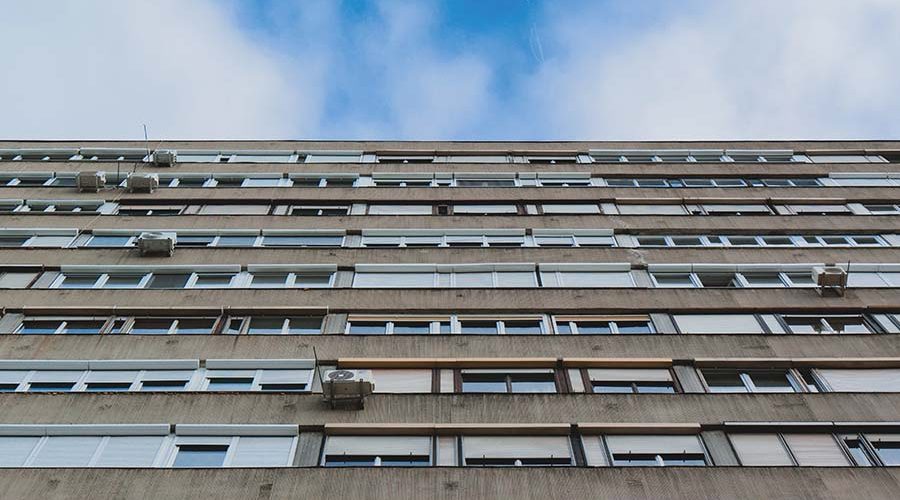Proactivity is the key if the sector is to ensure the safety of tenants and reputation of the industry, says Chris Proctor, CEO at Oneserve.
Oneserve
Sir Martin Moore-Bick’s Phase One Grenfell report was delivered on 30th October 2019. It is a comprehensive review of the horrific incident with a number of criticisms and recommendations. The Government too have made commitments to bring in various legislation to help to ensure that such an incident can never occur again.
Whilst Phase One focused on the causes of the fire, how it spread and how the emergency services reacted, there are a number of points that all of us in the housing sector need to take in and react to. Phase Two will certainly bring with it even more recommendations for our sector, but with the media and public focus very rightly continuing to be on housing, the time to act is now.
The impact of Hackitt and Moore-Bick’s reports
The lessons and changes needed after such a disaster as Grenfell are wide-ranging and significant. The pressure on local authorities to implement changes immediately is huge. The Government has already vowed to implement the recommendations in Moore-Bick’s first report as well as providing funding, although to what extent remains as yet unclear.
However, the pressure on local authorities to carry out the recommendations in a timely manner makes it likely that other front-line services will be held up or cancelled due to a lack of time, resource and money. Indeed, Birmingham City Council, which has 10% of the country’s publicly owned high-rise blocks, has already warned that the £93m that it will have to spend on fire safety measures within its properties as a result of the recommendations of the reports will force them to cut back on basic repairs. Despite the Government releasing money to assist with the new fire requirements, the already over-stretched, public bodies are struggling. Indeed, a recent FOI request found that one council had 651 overdue fire assessments, a staggering figure considering the urgency now placed on councils since Grenfell.
The same FOI request found that councils were already struggling with the day-to-day repair and maintenance of properties with one council admitting that the number of jobs that were completed within the first appointment was at 0%. For some local authorities already struggling to maintain properties, the extra pressure to undertake urgent fire assessments and any associated work could lead to a collapse of other front-line services and leave their tenants in a repairs and maintenance limbo.
Another impact is to rightly keep housing and standards at the forefront of the media and political agenda. The focus remains on the sector, and with more phases of the inquiry to be published, this is likely to remain the case for the foreseeable future. The horrific nature of the Grenfell fire also means that any incident that looks anything like it will likely garner unprecedented press attention. The November fire at student accommodation in Bolton highlights this. What in all likelihood would have remained a local story pre-Grenfell was suddenly very much a national one, with the housing provider under heavy scrutiny.
What can local authorities and the housing sector do?
So, with the housing sector and local authorities already struggling with the day-to-day maintenance of properties, adding the extra strain of implementing the recommendations from the reports is on the face of it an impossible task. The increase in public, media and central Government attention nevertheless means that housing providers should act now as they cannot afford to get it wrong.
Effective communication
In the days and months after the fire, it became clear that tenants had warned of the risk of fire, the placement of boilers and gas pipes, and the absence of a building-wide fire alarm or sprinkler system. Their warnings were allegedly “brushed away” by the council and tenant management organisation, a criticism that can be all too common in the housing sector. This apparent reluctance to engage with tenants is one of the many lessons all of us in the housing sector must ensure changes.
The level of ‘customer experience’ that tenants are receiving from across a range of services mean that their expectations are now higher than ever, and effective communication between tenant and housing association, council or other authority is a very basic but fundamental lesson that has to be learnt from the Grenfell disaster.
Acting before regulations are brought in
With so many regulations likely to be brought in over the next few years, it will be crucial that housing providers act quickly and proactively. Implementing changes now, rather than waiting till regulations are brought in, will allow housing providers to better plan for the future. Indeed, although Phase One has focused on the timeline of events and the emergency services’ response, there are already areas for housing providers to act on.
The two main areas of focus for the housing sector were lifts, and the need for a working ‘take-control’ mechanism for the fire brigade, and fire doors, where Moore-Bick has recommended urgent inspections and three-monthly checks going forwards to ensure that they are always up to standard. The Government has already committed to implementing the recommendations in full and without delay – just with these two areas in the initial report, housing providers are under real pressure.
Implementing regular checks on fire doors whilst implementing the other, crucial day-to-day maintenance will be a challenge, and housing providers need to get organised quickly.
Technology playing a role
With so many changes over and above the day-to-day challenges housing providers are already experiencing, it is clear that they are going to need some form of additional support. Aside from taking a proactive approach to implementing changes before new regulations are enforced, housing providers have to look elsewhere for solutions that will assist them. This is where technology can play such an important role by managing and evidencing their compliance responsibilities, as well as ensuring that the day-to-day activity continues, scheduled as efficiently as possible, alongside these new requirements.
The level of change already hinted at in the Phase One report points to a comprehensive review in Phase Two, which has always looked to be the more relevant phase for the housing sector. Without technology, many housing providers will struggle to keep up with the increasingly complex and stringent regulatory landscape, let alone being proactive. Technological support can also help housing providers better manage their day-to-day activities, helping to deliver more effective communication and better customer service – this in itself can alleviate many of the major concerns emanating from tenants and regulators alike.
What is ultimately clear though is that we all need to be proactive in our approach to the reports and investigations, to ensure the safety of tenants and the reputation of our industry.









